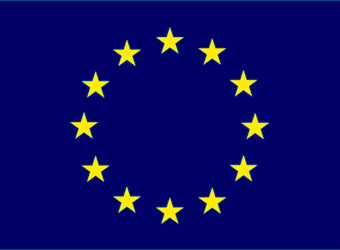
Delaying tactics included multiple patent applications for the same medicine (so-called patent clusters), initiation of disputes and litigation, conclusion of patent settlements, which constrain market entry of generic companies and interventions before national authorities when generic companies ask for regulatory approvals. The EU thinks that, when successful, these practices result in significant additional costs for health care – and ultimately taxpayers and patients – and reduce incentives to innovate.
The report takes a sample of medicines that faced loss of exclusivity in the period 2000 to 2007 in 17 Member States and estimates that additional savings of around € 3 billion would have been possible on that sample over this period if generic medicines had entered the market without delay. The report also finds that companies applied defensive patenting strategies, primarily aimed at blocking competitors in the development of new medicines.
Delays or blocks to market entry
The preliminary report shows that originator companies (that develop and sell new medicines) used a variety of methods with the objective of delaying or blocking market entry of generic companies (that sell medicines equivalent to original medicines once patents have expired) and other originator companies, and therefore maintain high income streams for the originator companies.
Documents found by the Commission during the sector inquiry included such declarations as:
- “We identify options to obtain or acquire patents for the sole purpose of limiting the freedom of operation of our competitors… Rights covering competitive alternatives are maintained in major markets until risk of competing products appearing is minimal.”
- “I suppose we have all had conversations around ‘how can we block generic manufacturers.’ (…) Don’t play games in patenting new salt forms too late, the generics are starting earlier and earlier. Get (…) claims on key intermediates that cover a number of routes. Process patents are not the biggest block but can put generics off if a superior chemistry job is done.”
- “Interchangeability issues were used in (several countries) to limit generic erosion. (…) Outcome: extra (…) sales of USD 61 m compared to expected generic erosion.”
The preliminary report highlights several different specific delaying strategies, including the following aimed at generic companies:
- originator companies filed so-called “patent clusters” – a large number of EU-wide patents (in one case 1300) filed for a single medicine
- there were also nearly 700 cases of reported patent litigation with generic companies, which on average lasted nearly three years. The generic companies ultimately won more than 60% of these cases.
- originator companies also concluded more than 200 settlement agreements with generic companies in the EU, in which they agreed on the terms for ending an ongoing litigation or dispute. More than 10% of the settlements were so-called “reverse payment settlements” which limited the entry to the market of the generic medicines and provided for payments from the originator to the generic companies. These payments amounted in total to more than €200 million.
- originator companies intervened in national procedures for the approval of generic medicines in a significant number of cases, which on average led to four months of delay for the generic medicine.
Based on a sample of medicines that faced generic entry in the period from 2000 to 2007, average price levels for medicines decrease by almost 20% after the first year following generic entry. In rare cases, the decrease in price levels can be as high as 90%. For the sample under analysis, total savings gained by generic entry amounted to at least € 14 billion over the period. Without these savings, total expenditure for the medicines analyzed would have been over 25% higher.
On average it took about seven months for generic products to enter the market on a weighted average basis and even the top-selling medicines faced an average delay of four months. This amounted to a (possible) lost savings of about € 3 billion for the health systems during 2000 to 2007 for the chosen sample of medicines facing patent expiry in 17 Member States.
The preliminary report also found evidence that originator companies also practice defensive patenting strategies to fence off competition from other originator companies. This may obstruct innovation, lead to higher costs for competing pharmaceutical companies and delay consumers’ access to innovative medicines.
Both generic companies and originator companies called for a single Community Patent and the creation of a unified and specialized patent judiciary in Europe. These calls are supported by the preliminary findings of the sector inquiry, that discovered 11% of contradictory final judgments in litigation cases and total direct costs associated with the patent litigation of €420 million
EU Competition Commissioner Neelie Kroes said the EU Commission would not hesitate to launch antitrust cases against companies that may have violated EU rules — even generic companies who took money to agree on curbing competition. The EU is yet to charge any pharmaceutical company formally but regulators raided the offices of several drug makers in different EU states on Nov. 24.
For further information, see also MEMO/08/746.
The preliminary report and more information on the pharmaceutical sector inquiry will be available here.
